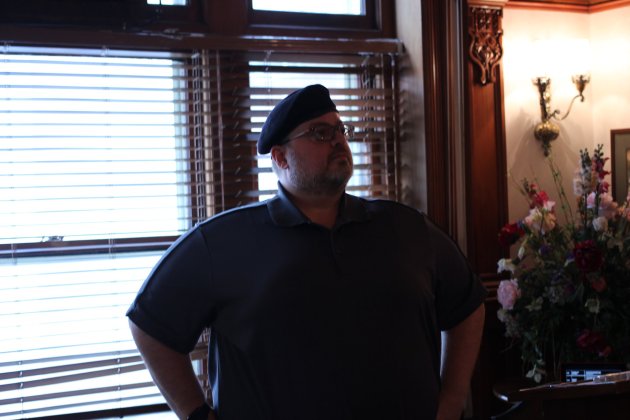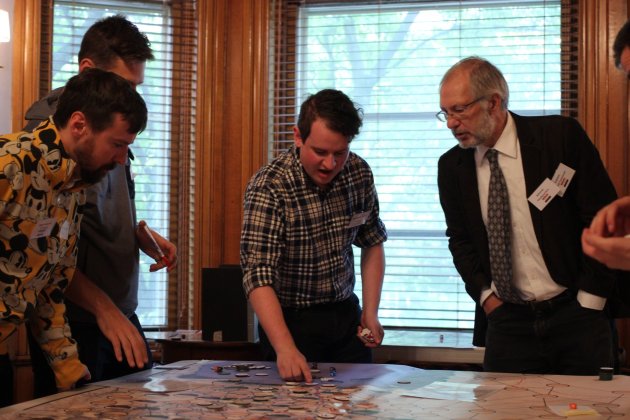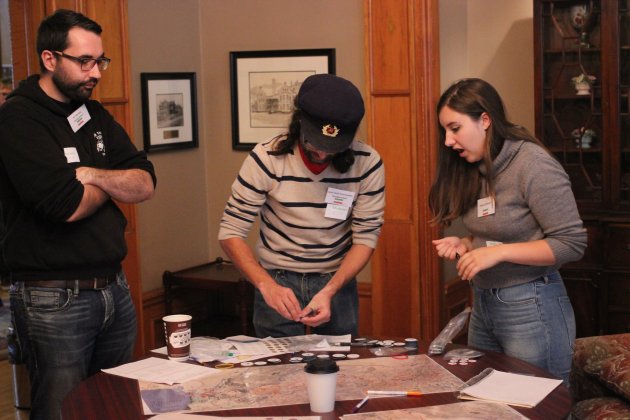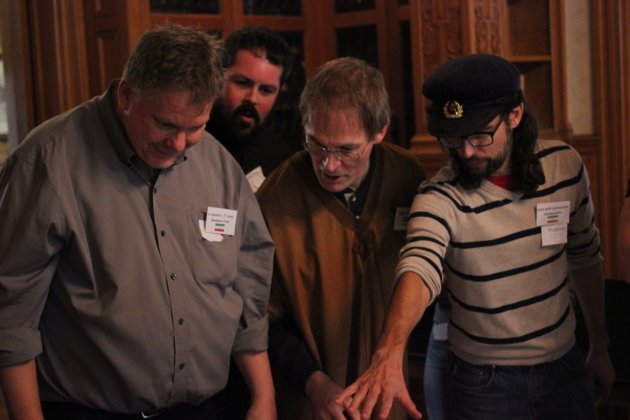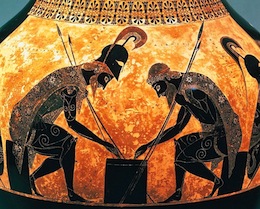
PAXsims is devoted to peace, conflict, humanitarian, and development simulations and serious games for education, training, and policy analysis.
If you wish to be notified when new material is posted here, use the “subscribe by email” option below.
Relevant comments are welcomed.
PAXsims operates on a non-profit basis. You can donate to support our activities via Patreon: https://www.patreon.com/PAXsims
Join 3,521 other subscribers
Recent Posts
- Wargamer Job at NDU
- Registration for Connections US 2024 now open
- Connections UK 2024
- All that’s left is the grading…
- Wargaming the effects of a Trump presidency on NATO
- Journal of Defense Modeling and Simulation (April 2024)
- We Are Coming, Nineveh nominated for Charles S. Roberts Awards
- Assises Françaises d’Étude du Wargaming (29-30 April)
- PPCLI QUICK Jr
- US Army Mad Scientist Initiative calling all wargamers
Top Posts
- Derby House Principles
- Food Chain Reaction: A Global Food Security Game
- MaGCK
- Exploring matrix games for mass atrocity prevention and response
- All that's left is the grading...
- Ace of Aces: or, why you should Do Maths as a game designer
- Diversity card deck
- Glory to the Heroes - a simple grand strategic simulation of the Russo-Ukrainian War
- Wargamer Job at NDU
- Wargaming the effects of a Trump presidency on NATO
Categories
- call for papers
- conferences
- courses
- crowd-sourcing
- forthcoming games and simulations
- gaming vignettes
- job opportunities/positions vacant
- latest links
- methodology
- not-so-serious
- playtesters needed
- reader survey
- request for proposals
- scholarships and fellowships
- simulation and game reports
- simulation and game reviews
- simulation and gaming debacles
- simulation and gaming history
- simulation and gaming ideas
- simulation and gaming journals
- simulation and gaming materials
- simulation and gaming miscellany
- simulation and gaming news
- simulation and gaming publications
- simulation and gaming software
Archives
Associations
- Australian Defence Force Wargaming Group
- Connections Netherlands
- Connections North (Canada)
- Connections Oz (Australiasia)
- Connections UK
- Connections US
- Georgetown University Wargaming Society
- International Game Developers Association
- International Simulation and Gaming Association
- MORS Wargaming Community of Practice
- North American Simulation and Gaming Association
- SAGSET
- Serious Games Network – France
- Simulations Interoperability Standards Organization
- UK Fight Club
- USA Fight Club Wargaming Group
- Women's Wargaming Network
- Zenobia Award
Institutions (public and commercial)
- Advanced Disaster, Emergency and Rapid Response Simulation
- Booz Allen Hamilton—experiential analytics
- BreakAway—serious games
- Brian Train-game designs
- Civic Mirror
- CNAS Gaming Lab
- ConSimWorld
- Decisive Point
- Fabulsi—online roleplay simulations
- Fiery Dragon Productions
- Fletcher School/Tufts University—SIMULEX
- Fort Circle Games
- GamePolitics
- History of Wargaming Project
- Imaginetic
- Kings College London—Kings Wargaming Network
- LBS – Professional Wargaming
- LECMgt
- McGill Model UN
- MCS Group
- MegaGame Makers
- MODSIM World conference
- Naval Postgraduate School—MOVES Institute
- NDU—Center for Applied Strategic Learning
- Nusbacher & Associates
- Nuts! Publishing
- Peacemaker Game
- Persuasive Games
- PlanPolitik
- RAND Center for Gaming
- Serious Games Interactive
- Slitherine Software
- Statecraft
- Stone Paper Scissors
- Strategy and Tactics Press
- Track4
- Utrecht Institute for Crisis and Conflict Simulation
- Valens Global
- Wargaming Connection
- Wikistrat blog
- World Peace Game Foundation
Journals and Publications
- Battles Magazine
- C3i Magazine
- Eludamos: Journal of Computer Game Culture
- GAME: The Italian Journal of Game Studies
- International Journal of Gaming and Computer-Mediated Simulations
- International Journal of Role-Playing
- Military Training & Simulation
- Sciences du jeu
- Simulation & Gaming
- The Journal of Defense Modeling and Simulation
- Training & Simulation Journal
- Virtual Training & Simulation News
Simulations and Games
- Active Learning in Political Science
- Barnard College—Reacting to the Past
- Best Delegate
- Beyond Intractability—Exercises and Simulations
- BoardGameGeek
- Class Wargames
- Columbia American History Online—classroom simulations
- Community Organizing Toolkit—game
- ConSimWorld
- CRISP: Crisis Simulation for Peace
- CUNY Games Network
- Darfur is Dying—game
- Economics Network—classroom experiments and games
- Emergency Capacity Building project — simulation resources
- EuroWarGames
- Game Design Concepts
- Game Theory .net
- Gameful
- Games & Social Networks in Education
- Games for Change
- GeoGame
- Giant Battling Robots
- Global Justice Game
- Grog News
- Guns, Dice, Butter
- Ian Bogost
- ICT for Peacebuilding
- Journal of Virtual Worlds Research
- Little Wars
- Ludic Futurism
- Ludology
- Mike Cosgrove—wargame design class
- MIT-Harvard Public Disputes Program—simulation materials
- MSSV
- National Center for Simulation
- National Security Decision-Making game
- No Game Survives…
- North American Simulation and Gaming Association
- Oil Shockwave Simulation
- Pax Warrior
- Pervasive Games: Theory and Design
- Play the Past
- Play Think Learn
- Purple Pawn
- Serious Games at Work
- Serious Games Network France
- Strategikon (French)
- Technoculture, Art, and Games
- Terra Nova (Simulation + Society + Play)
- The Cove: Wargaming
- The Forge Wargaming Series
- The Ludologist
- The Open-Ended Machine
- Tiltfactor
- Tom Mouat's wargames page
- Trans-Atlantic Consortium for European Union Studies & Simulations
- United States Institute for Peace—Simulations
- University of Maryland—ICONS Project
- US Army—Modelling and Simulation
- USC—Institute for Creative Technologies
- Wargame_[space]
- Web Grognards
- Zones of Influence


